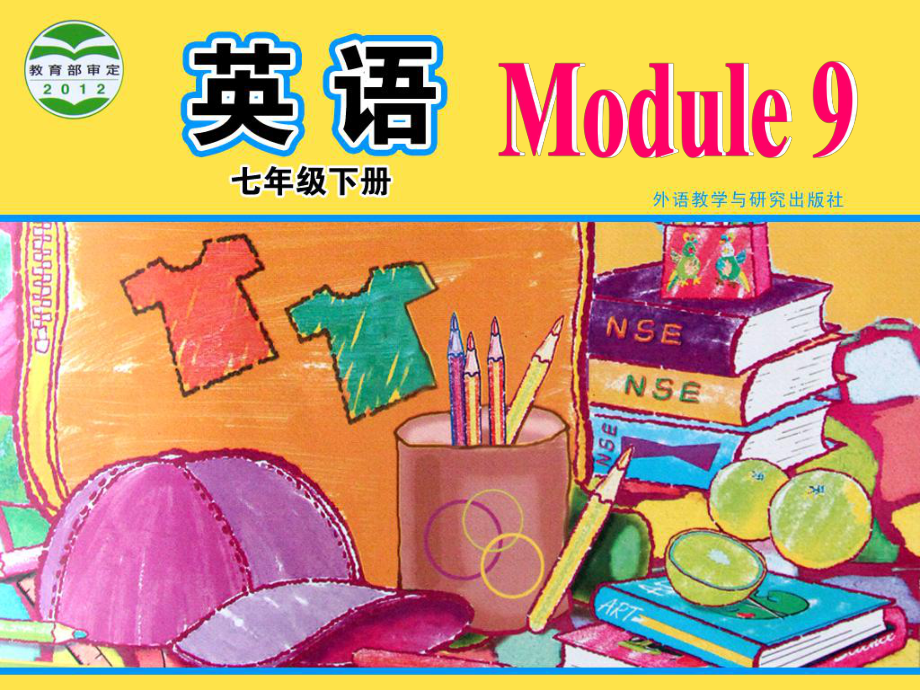《外研版初中英語七年級下冊Module 9Unit 2 He decided to be an actor課件》由會員分享�,可在線閱讀,更多相關(guān)《外研版初中英語七年級下冊Module 9Unit 2 He decided to be an actor課件(32頁珍藏版)》請?jiān)谘b配圖網(wǎng)上搜索�。
1、play n. 劇本�;劇本;戲劇戲劇 on prep. 在在.河邊河邊poem n.詩歌詩歌work n.作品�;作品;著作著作 fire n.火�����;火災(zāi)火�����;火災(zāi)language n.語言語言Who is he?He is William Shakespeare.Was he a writer?Yes, he was. He was a famous English writer of plays and poems.He was born inTwo of his famous plays are Hamlet and Romeo and Juliet.Read the passage and
2���、decide what William Shakespeare wrote.plays poems storiesPut the sentences in the correct order.a) Shakespeare went to London.b) Shakespeares company built the Globe Theatre.c) Shakespeare married.d) Shakespeare liked plays at school. e) Shakespeare died at the age of 52.f) Shakespeare decided to be
3��、 an actor.123456Complete the timeline for Shakespeare with the correct form of the words and expressions from the box.be born build die finish school go to London marry156415781582About 159215991616was born finished schoolmarri-edwent to Londonbuilt the Globe TheatrediedComplete the passage with the
4、 correct form of the words from the box.Shakespeare (1) _ in 1582 and had three children. He became famous around the world for his plays and you can see them in many different (2) _.marriedlanguagesShakespeare also wrote (3) _ as well. He was also a (4) _ and (5) _ actor. You can see his Globe Thea
5�����、tre in London today, but its not the same building. There was a (6) _ in the old theatre and they built it again. He (7) _ at the age of fifty-two.poemsfirediedrichsuccessfulWork in groups. Talking about Shakespeares plays and poems.Work in pairs. Ask and answer questions about Shakespeare. Use the
6、information in Activity 3 to help you. Was Shakespeare born in 1564? Yes, he was. Did he leave school in 1582. No, he didnt. He finished school in 1578.Look at the sentences.Wang Dong was born in Guangzhou.At the age of three, he went to Shenzhenwith his parents.At the age of six, he started school.
7����、 Now write sentences about events in your life.你可以這樣開頭:你可以這樣開頭:I was born.At the age of.1. He married in 1582 and had three children. marry意為意為“結(jié)婚結(jié)婚”,它既可作不及物���,它既可作不及物動詞�����,也可作及物動詞動詞����,也可作及物動詞�。用作及物動詞用作及物動詞 時,后可直接跟賓語����,即時,后可直接跟賓語�,即marry sb.,意���,意為為“嫁給某人���;娶某人�;和嫁給某人���;娶某人���;和結(jié)婚結(jié)婚” e.g. Lisa married very early. John wi
8、ll marry Betty next month. marry sb. to sb.����,表示,表示“把某人嫁給某人把某人嫁給某人”get / be married表示表示“結(jié)婚了結(jié)婚了”����。e.g. Mrs Smith wants to marry her daughter to a teacher. Tony and Lucy got married last year.根據(jù)漢語意思完成英語句子。根據(jù)漢語意思完成英語句子�。(1)他把女兒嫁給了一個醫(yī)生。他把女兒嫁給了一個醫(yī)生����。 He _ his daughter _ a doctor.(2)比爾在兩年前結(jié)婚了。比爾在兩年前結(jié)婚了����。 Bill _
9、 two years ago.(3)彼得下個月將要與瑪麗結(jié)婚�。彼得下個月將要與瑪麗結(jié)婚。 Peter will _ Mary next month.marriedtogot married marry2. He became a successful actor and began to write plays. successful是由名詞是由名詞success加后綴加后綴 ful構(gòu)成的形容詞��,意為構(gòu)成的形容詞���,意為“成功的成功的”���。在句。在句中可作表語�、定語中可作表語、定語��。 e.g. This concert is very successful. This is a very succ
10�、essful party. 根據(jù)句意用根據(jù)句意用success的適當(dāng)形式填空。的適當(dāng)形式填空�����。(1) We all think the movie is a _.(2) Mary thinks that the man is a _ actor.successsuccessful3. Queen Elizabeth I enjoyed his works very much. work 是名詞�����,意為是名詞����,意為“作品���;著作作品;著作 ”���。1)work 表示表示“工作工作”時�����,是時����,是不可數(shù)名詞不可數(shù)名詞���。2)表示表示“作品作品”時��,有時可數(shù)有時不可數(shù)時�����,有時可數(shù)有時不可數(shù)���。 其區(qū)別是:若表示人
11����、們的手工制作品��,其區(qū)別是:若表示人們的手工制作品�, 如工藝品����、刺繡品等,是如工藝品����、刺繡品等,是不可數(shù)名詞不可數(shù)名詞�。3)若表示若表示文學(xué)家、藝術(shù)家�、音樂家文學(xué)家、藝術(shù)家�����、音樂家等的等的“ 作品作品”���、“著作著作”等�,則是等,則是可數(shù)名詞可數(shù)名詞���。4. William Shakespeare died at the age of fifty-two. die 是動詞是動詞����,意為�����,意為“死�,去世死,去世”����。其名其名詞形式是詞形式是 death,形容詞形式是形容詞形式是 dead 和和 dying (die的現(xiàn)在分詞的現(xiàn)在分詞)�, dead 意為意為“死的死的”, dying 意為意為“奄奄一息的
12�、奄奄一息的,瀕臨死亡的����,瀕臨死亡的”��。詳見下表:��。詳見下表: 動詞動詞形容詞形容詞名詞名詞現(xiàn)在式現(xiàn)在式 過去式過去式 現(xiàn)在分詞現(xiàn)在分詞deaddeathdiedieddyingdying5. He was rich and successful. rich 是形容詞�,意思是是形容詞���,意思是“富有的富有的”��,反義詞是反義詞是 poor “貧窮的貧窮的”。即:����。即: rich poor 富有的富有的 反義詞反義詞 貧窮的貧窮的例如:例如:He is very rich but the boy is very poor.他很他很富有富有,但這個男孩很����,但這個男孩很貧窮貧窮。你都弄懂了嗎�?你都弄懂了嗎?你真聰明����!你真聰明!Homework Review and recite the important points of Unit 2. 復(fù)習(xí)并記憶復(fù)習(xí)并記憶Unit 2 重點(diǎn)內(nèi)容����。重點(diǎn)內(nèi)容�。
 外研版初中英語七年級下冊Module 9Unit 2 He decided to be an actor課件
外研版初中英語七年級下冊Module 9Unit 2 He decided to be an actor課件

